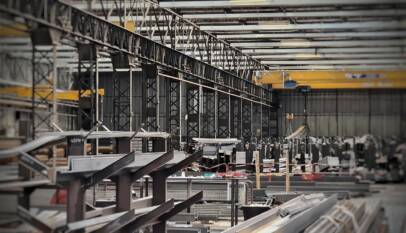
Finding reliable metal siding suppliers near me can save time and reduce shipping costs. Many local suppliers offer a variety of metal siding options, including steel, aluminum, and galvanized panels, suitable for residential and commercial projects.
The best way to locate trustworthy metal siding suppliers is by checking local business directories, online reviews, and visiting suppliers directly to assess product quality and availability. This approach helps buyers compare prices and get personalized service.
When choosing a supplier, it’s important to consider their inventory range, delivery options, and customer support. Doing this helps ensure the project runs smoothly and meets specific building requirements.
How to Find Trusted Metal Siding Suppliers Near Me
Finding reliable metal siding suppliers involves checking specific qualities, comparing product lines, and understanding their delivery and installation services. These factors help ensure the supplier meets practical needs and budget constraints.
Criteria for Evaluating Local Metal Siding Suppliers
A trusted supplier should have a solid track record of delivering quality metal siding consistently. Verify their business license, customer reviews, and years in operation.
Check if they offer warranties on materials, which indicates confidence in product durability. Also, inquire about their customer service responsiveness and technical support availability.
Location matters. A supplier close by can reduce shipping costs and simplify returns or exchanges. Confirm they stock a range of siding types to fit different project requirements.
Comparing Metal Siding Products and Brands
Look for suppliers offering multiple metal siding options such as aluminum, steel, and copper. Each metal has specific properties, costs, and maintenance needs.
Review product specifications like thickness, coating, corrosion resistance, and fire rating. Compare these details across brands for durability and suitability.
Price comparisons should include material cost, installation ease, and long-term upkeep to get a complete picture. Some brands provide better warranties, which adds value.
Understanding Delivery and Installation Options
Check if the supplier provides timely delivery and whether they have partnerships with reliable freight companies. Confirm shipping fees and estimated arrival times.
See if installation services are offered. Certified installers can ensure proper siding fitment and avoid issues like leaks or warping.
Ask about post-installation support, including procedures for handling damaged goods or installation errors. Clear policies improve the overall buying experience.
Choosing the Right Metal Siding for Your Project
Selecting metal siding involves understanding material options, budget constraints, and the product’s longevity. Each factor directly influences how the siding performs and fits the specific requirements of a building project.
Types of Metal Siding Available Locally
Common metal siding types include steel, aluminum, zinc, and copper. Steel is the most widely used, prized for its strength and affordability. Aluminum is lighter and resists corrosion but typically costs more.
Zinc offers a self-healing surface and a unique patina over time, suitable for architectural projects. Copper provides a distinct aesthetic and excellent durability but comes at a higher price point.
Profiles vary from vertical panels, corrugated sheets, to standing seam designs. Local suppliers usually carry a range that matches common commercial and residential needs.
Cost Factors and Budget Considerations
Metal siding cost depends on material, gauge (thickness), finish, and installation complexity. Steel generally comes cheapest, while copper and zinc cost significantly more per square foot.
Additional expenses include special coatings for corrosion resistance and insulation materials if needed. Custom colors or textures also add to the price.
Labor varies according to the siding profile and the project’s scale. Homeowners should budget for both material and professional installation for proper sealing and fastening.
Maintenance and Durability Insights
Metal siding can last 30 to 50 years if maintained correctly. Steel needs periodic painting or coatings to prevent rust. Aluminum and zinc are more resistant to corrosion with less maintenance.
Cleaning with mild detergents and inspecting for damage after storms prolongs the siding’s life. Scratches and dents can be repaired, but fading or oxidation may require repainting.
Properly installed, metal siding resists pests, fire, and weather impacts better than wood or vinyl alternatives.
House for Sale in Mississauga: Your Guide to the Best Neighborhoods and Prices
Finding a house for sale in Mississauga means accessing a diverse real estate market that …




